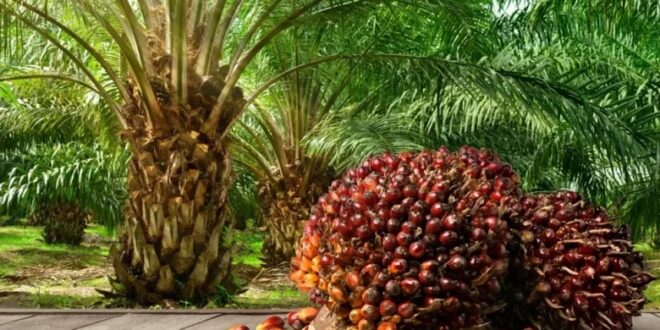India is on the brink of a palm oil revolution, with NMEO-OP driving its transformation from an import-dependent nation to a key global exporter.
By Belvinder Sron
In today’s shifting global landscape, economic resilience has become essential. Governments worldwide are prioritising domestic industries to shield their economies from supply chain disruptions, price volatility, and unforeseen crises such as wars and pandemics. For India, this vision aligns with Atmanirbhar Bharat, a self-reliance initiative that not only aims to serve its population but also supports its economy.

One of the most critical areas where India is pushing for self-sufficiency is edible oil production, particularly palm oil. Edible oils and pulses dominate India’s agricultural imports, with the edible oil import bill reaching significant highs in recent years. Palm oil alone accounts for more than half of India’s edible oil imports, making it a key focus area for self-reliance. The National Mission on Edible Oils – Oil Palm (NMEO-OP) has been launched to address this dependence and boost domestic production while enhancing farmer incomes.
Since its launch in August 2021, NMEO-OP has laid out a clear roadmap for consistent and sustainable palm oil cultivation. It is part of India’s mission to boost growth in the edible oil sector and achieve self-reliance through a multifaceted strategy: integrating palm oil cultivation into India’s agricultural landscape through crop retention and diversification, expanding cultivation into suitable wastelands and rice fallow lands, and enhancing productivity through high-quality seeds, advanced farming techniques, and modern production technologies. India has already identified extensive land resources for palm oil cultivation, aiming to achieve profitability, farmer welfare, and environmental sustainability, thus incorporating the three vital ingredients that have powered the success of major palm oil producers worldwide.
India’s palm oil vision extends beyond cultivation. In its 2024 report, NITI Aayog recommends fostering collaborations with private sector players to accelerate growth in areas such as technology, marketing, seed production, and processing. The government think tank also emphasises the need for coordinated efforts among government agencies, grower cooperatives, local NGOs, and private sector for sustainable palm oil production.
For Malaysia, NMEO-OP presents an opportunity to share its expertise in palm oil cultivation, processing, and sustainable practices with India. Palm oil is a vital economic driver for Malaysia, contributing roughly 3% to its GDP of around USD400 billion. Palm oil cultivation spans 5.6 million hectares, with large companies employing about 1 million workers and smallholders supporting 4,50,000 households. This industry generates significant income and revenue for these communities, with exports bringing in around USD20 billion annually and contributing approximately USD4 billion in tax revenue. The industry supports around 30 companies, serves 4 million customers, and produces approximately USD3.5 billion worth of products. It has played a transformative role in Malaysia’s economy and holds the same potential for India.
Another key area for improvement is of palm fruit yields, which are the highest in Malaysia, but remain comparatively low in India. This gap can be bridged through Malaysia’s advancements in seed quality and plantation techniques.
As palm oil expansion progresses, sustainability remains an important factor. The global industry faces increasing scrutiny over environmental concerns, and India has an opportunity to integrate sustainable practices from the outset. The Malaysian Sustainable Palm Oil (MSPO) certification scheme ensures adherence to environmental and sustainability standards. As of today, it covers 84% of oil palm planted areas in Malaysia, approximately 5.6 million hectares, and represents around 3,00,000 smallholder farmers nationwide. The certification also aligns with various United Nations Sustainable Development Goals, underlining the country’s commitment to responsible palm oil production.
Malaysia has long been a key supplier of palm oil, exporting the majority of its production and significantly contributing to global food security. Its success story, built on smallholders’ participation, economic growth, and sustainable cultivation, is one that India is well-positioned to replicate on an even larger scale.
India’s transition from a major palm oil importer to a potential exporter depends on successfully integrating its production into global markets. Malaysia’s extensive trade networks, well-established regulatory frameworks, and expertise in positioning palm oil as a high-quality, sustainable product could serve as a model for India to expand its exports to key markets. Malaysia also has the capacity to share knowledge with India to realize this transition.
Becoming a net exporter of palm oil is both an ambitious and achievable goal for India. With dedicated land resources, a strong policy framework, and sustained government support, the foundation is already in place. However, long-term success will depend on efficient infrastructure, strategic global partnerships, and a firm commitment to sustainability.
As the world grapples with food security challenges, India’s rise as a palm oil exporter will strengthen global edible oil supply chains, stabilise prices, and promote sustainable farming.Meanwhile, Malaysia will continue to support India in meeting its domestic oils and fats requirements and food security needs.
Belvinder Sron is the Chief Executive Officer of the Malaysian Palm Oil Council.
 Expressnews
Expressnews








